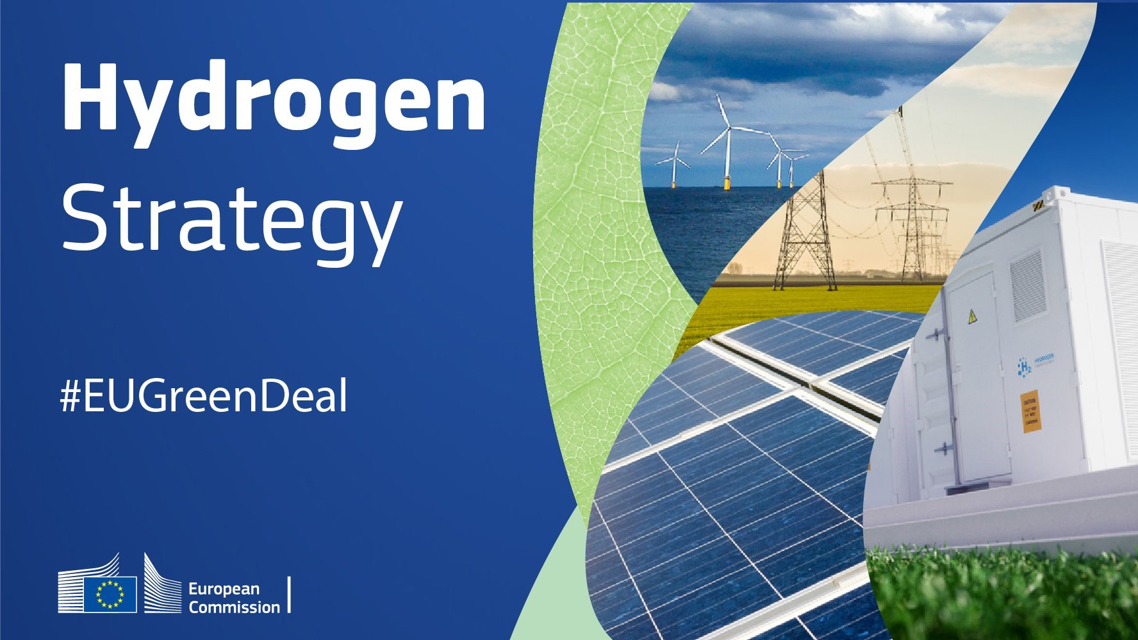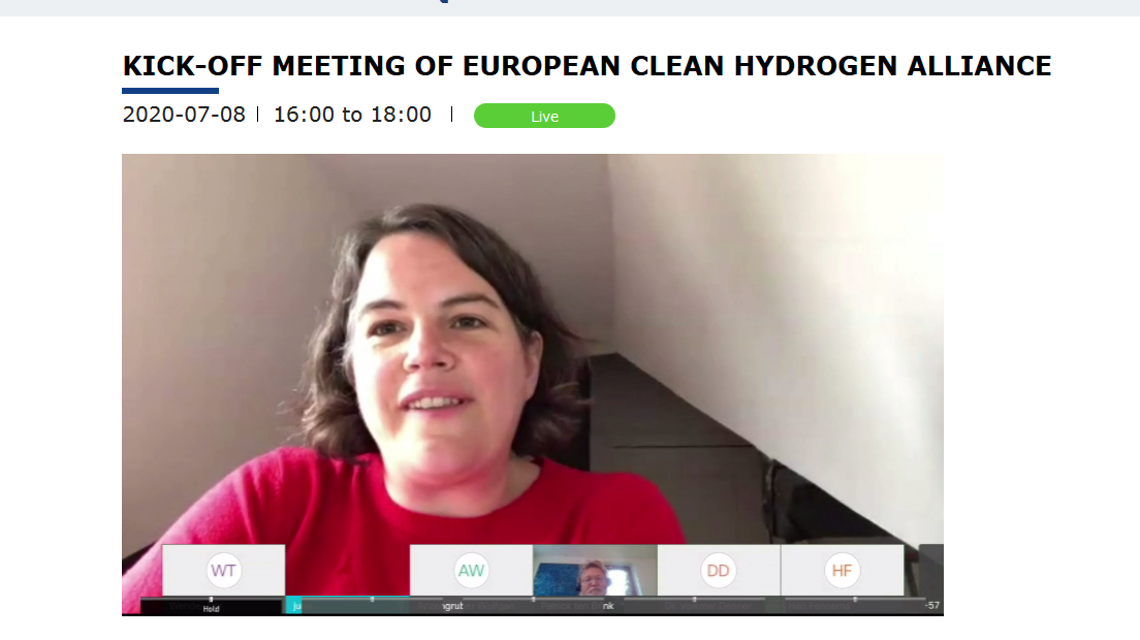We can look across the world and see other nations bringing forward multi-billion euro, job-creating hydrogen strategies in this technology race. We have long argued that the EU cannot afford to risk being left behind and failure would result in both not meeting our climate obligations and a loss of high skilled and quality jobs.
IndustriAll Europe strongly welcomes the EU Clean Hydrogen Strategy published on 8 July and is committed to become a proactive stakeholder in the EU Clean Hydrogen Alliance that was launched in a virtual conference the same afternoon.
Hydrogen is a key technology in the decarbonisation puzzle for many of the sectors in which our members work, such as energy-intensive sectors like chemicals and steel, mobility/transport equipment and heating, while bringing along huge potentials of storing renewable energy in times of peak supply. There are significant employment opportunities in the hydrogen value chain: new jobs in hydrogen production and infrastructure, but the greater goal is in retaining good employment in existing energy-intensive industries and securing Europe’s role as ‘the low-emissions workshop of the world’. The strategy’s potential to create new and maintain existing jobs are of paramount importance in demonstrating that a Just Transition is possible in the pursuit of carbon neutrality. The time to act is now!
Representing industriAll Europe in the Launch Meeting of the Clean Hydrogen Alliance, Deputy General Secretary Judith Kirton-Darling emphasized the crucial role unions play in this discussion. “Unions must be actively involved in the implementation of the Clean Hydrogen Strategy through our active participation in the Clean Hydrogen Alliance – this is a vital part of the Just Transition jigsaw” she stressed commenting on the ambitions put forward by policymakers, CEOs and investors. “We can look across the world and see other nations bringing forward multi-billion euro, job-creating hydrogen strategies in this technology race. We have long argued that the EU cannot afford to risk being left behind and failure would result in both not meeting our climate obligations and a loss of high skilled and quality jobs. Therefore, the new strategy and this alliance are vitally important for Europe’s industrial and energy workforce – we're here to play our role.”
The European Commission strategy builds on the understanding that in order to reach carbon neutrality by 2050, Europe cannot count on electrification alone. The challenge is huge and the demand for renewable electricity has been estimated to double to 53% by 2050. In this long-term strategy, the EU estimates that the share of hydrogen will grow from 2% in 2018 to 13-14% by 2050. EU industry has set an ambitious target to install 2 times 40 GW of electrolysers by 2030 (40 GW capacity in Europe and 40 GW in the European neighbourhood exporting back to the EU). The EU Clean Hydrogen Strategy aims at setting out a strategic roadmap to “turn clean hydrogen into a viable solution to decarbonise different sectors over time, installing 6 GW of renewable hydrogen electrolysers in the EU by 2024 and 40 GW of renewable hydrogen electrolysers by 2030” by overcoming the many existing challenges, including the investment needs, developing an enabling regulatory framework, creating new lead markets, sustained research and innovation in breakthrough technologies and their market uptake, large-scale infrastructure networks and cooperation with third countries. According to the Commission’s communication investments in renewable hydrogen could reach €180-470 billion by 2050 and the emergence of a clean hydrogen value chain could employ 1 million people.
The Clean Hydrogen Alliance builds on the example of the European Battery Alliance and will be a crucial element in the implementation of the Clean Hydrogen Strategy by developing an investment agenda and identifying concrete projects. It will be a cooperation between public authorities, industry and civil society.
The Clean Hydrogen Strategy was published on 8 July alongside the Strategy for Energy Sector Integration that aims at fostering an integrated EU energy system with renewable electricity, circularity and renewable and low-carbon fuels at its core. Both strategies will be instrumental in decarbonising and decentralising Europe’s energy system and reaching Europe’s climate goals.
Contact: Andrea Husen-Bradley press and communication, Corinna Zierold senior adviser on energy policy

